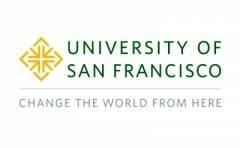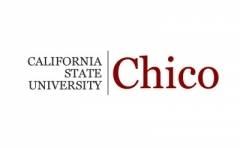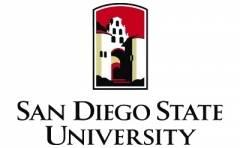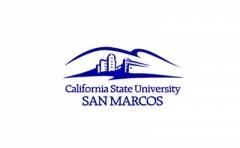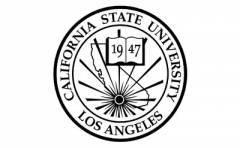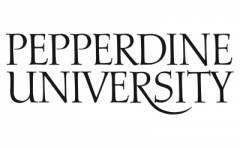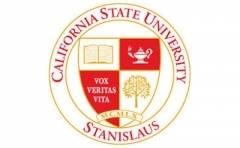Best Kinesiology and Exercise Science colleges in California 2026
Humans are made to move! Even in the womb, we’re kicking and squirming around just waiting to get out and get mobile. Our bodies are biomechanical miracles that are so complex, there’s an entire academic field devoted to the scientific study of our movement and how it impacts our lives in general. This field is called Kinesiology!
Despite America’s population of over 331 million people, we only have about 500 registered Kinesiotherapists working today. The majority of these invaluable workers are federal employees assigned Veterans Affairs facilities around the nation. Some work in clinics or hospitals, but many also provide aquatic therapy in swimming pools.
Kinesiology majors work in many related career fields, too, such as trainers, coaches, and occupational therapists. This degree is quite versatile, so let’s explore the options!
Click Here to See the Best Colleges in the USBest Kinesiology and Exercise Science colleges in California for 2026
The University of San Francisco is a private campus nestled on 55 scenic acres near the Golden Gate Bridge. Its acclaimed Department of Kinesiology offers an interdisciplinary bachelor’s degree program that provides opportunities for students to work alongside faculty in research and community settings. There are also helpful online advising and registration tools, exciting local internships, and an engaged Kinesiology Student Association to keep learners motivated!
Established in 1863, Saint Mary's College of California is a private, Catholic college in the small town of Moraga, part of the San Francisco Bay Area. The university’s Department of Kinesiology features a range of Kinesiology programs, such as a BS in Kinesiology - Exercise Science and BA options in Kinesiology - Sport and Recreation Management or Health Promotion. The school’s high-tech Human Performance Lab provides students with great hands-on research and exercise testing practice. There are also many internship options, either on campus or with local sports franchises!
Just two miles from the Pacific Coast, San Francisco State University is a Hispanic-Serving Institution and part of the larger California State University system. The university’s Department of Kinesiology offers undergrad programs with focuses on Exercise and Movement Sciences or Physical Education, and graduate programs concentrated on Exercise Physiology, Movement Science, or Physical Activity: Social Scientific Perspectives. The department is home to five cutting-edge research labs and dozens of distinguished faculty.
The second oldest campus in California, Chico State is relatively small but has a robust kinesiology department offering a BS in Exercise Physiology, BA in Kinesiology, and an MA in Kinesiology. The school helps students by connecting them with relevant scholarship opportunities and hosts faculty-sponsored student clubs to keep things lively! There are also several Community & Service Programs to participate in, such as the BE:WEL Program and Autism Clinic.
San Diego State University is a public, high-research activity school with a billion-dollar budget, resplendent mission-style architecture, and easy access to the Pacific Ocean and nearby scenic mountains. SDSU’s School of Exercise and Nutritional Sciences features a BS in Kinesiology with emphasis options such as Exercise, Science Generalist, Fitness Specialist, and Pre-Physical Therapy. The university is more accessible than some, with a ~39% admissions rate. Kinesiology major applicants need at least a 2.0 GPA to apply.
Located in San Diego County, California State University-San Marcos’ Department of Kinesiology has built an inclusive “environment of innovative research, student-centered learning, and effective community engagement in movement and health.” It offers a Bachelor of Science in Kinesiology with degree options in Movement Science or Health Science, as well as a master’s that can be tailored to prepare graduates to either enter the workforce after graduation or continue on with doctoral studies.
Cal State LA is a premier public university that’s been federally designated as a Hispanic-Serving Institution, a Minority-Serving Institution, and an Asian American and Native American Pacific Islander-Serving Institution! The School of Kinesiology has three main offerings:
- A BS in Kinesiology with options in:
- Community Leadership of Physical Activity
- Exercise and Human Performance
- Rehabilitation and Therapeutic Exercise
- Subject Matter Preparation for Single Subject Teaching Credential
- A BS in Exercise Science
- An MS in Kinesiology
Overlooking the Pacific Ocean, Pepperdine University sprawls across 830 acres of scenic Malibu vistas. Its Seaver College of Letters, Arts, and Science offers a BS or BA in Sports Medicine with fantastic internship opportunities in the local area. Students can view the full curriculum and course descriptions online. Juniors are encouraged to apply to the Honors Research Program, where they can discover “how scientists develop hypotheses; design experiments; collect, analyze, and interpret data; and present and disseminate their findings to the scientific community.”
William Jessup University offers 3 Kinesiology and Exercise Science degree programs. It's a small, private not-for-profit, four-year university in a large suburb. In 2023, 25 Kinesiology and Exercise Science students graduated with students earning 18 Bachelor's degrees, and 7 Master's degrees.
Founded in 1957, Stanislaus State is a relatively new addition to the California State University system. Its Department of Kinesiology & Public Health Promotion offers a BA in Kinesiology with concentration options in either Exercise Science or Health Promotion. There’s also a Single Subject Matter Preparation in Physical Education, MA in Education with a concentration in Physical Education. Check out the New Student Orientation video to get a feel for the department!
Find local colleges with Kinesiology and Exercise Science majors in California
Kinesiology and Exercise Science Degree Overview
To get started, Kinesiotherapists and workers in related fields usually need to earn their Bachelor’s in Kinesiology. However, there are some kinesiology jobs where you can get started with just a certificate or associate degree.
The kinesiology major covers subject matter such as applied exercise science, athletic training, movement science, and sometimes sport management. Most students opt to specialize in an area related to the type of job they want later, so they might focus on physical therapy or fitness.
Students who want to qualify for advanced positions can earn a master’s or even a doctorate. Whether you earn an undergraduate or graduate degree, you’ll also need to finish a specified number of clinical internship hours to qualify for most jobs in this field.
What to Expect as a Kinesiology Major
Types of Kinesiology Classes
Kinesiology degree students will study everything from anatomy and physiology to physics and communications. Students may also take classes in exercise training and re-education of patients’ sensory and respiratory systems. Below is an overview of common course titles:
- Anatomy
- Biochemistry
- Exercise physiology
- Exercise psychology
- Exercise science
- Geriatric mobility
- Human biology
- Motor development
- Nutrition and dietetics
- Physics
- Principles of physical activity
- Stamina training
- Strength training
Courses will vary by school, but most curriculums cover the same basics. Beyond those basics, coursework depends on which area a student wants to specialize in (based on what they want to do after they graduate).
Skills Learned in a Kinesiology Degree Program
The primary objectives of kinesiology programs are to teach students skills such as how to assess and treat patients through relaxation techniques, correcting bodily posture and alignment, enhancing joint mobility, improving muscular strength and endurance, and increasing patient coordination. There are also specialized skills based on the particular area a student wants to focus on so they can secure future positions or prepare for a higher-level kinesiology degree.
How Long Does it Take to Get a Kinesiology Degree?
A Bachelor’s in Kinesiology usually requires 120 semester credit hours, which equates to roughly 40 courses. This bachelor’s takes four years to complete if attending full-time. However, the length of time varies based on multiple factors, such as:
- Previous education (i.e., the number of transferable credits you may hold)
- Courseload (i.e., whether you will attend full-time or part-time)
- Enrolling in 12 or more semesters hours’ worth of classes (~four classes) per semester is considered full-time
- Anything under 12 credits is part-time, so the time to finish if attending part-time varies greatly
- For example, a person taking one class per term will obviously take longer to finish than someone taking three classes per term…yet both are classified as part-time students
- Online learning (many online programs offer accelerated courses)
- Other accelerated program availability
Kinesiology Degree Specializations
There are kinesiology degree specialization options at both the undergraduate and graduate level. A few of the most common include:
- Athletic Training
- Exercise Physiology
- Exercise Science
- Occupational Therapy
- Physical Therapy
- Rehabilitation
- Sport Management
- Sports Medicine
Next Steps to Getting Started in a Kinesiology Program
To complete a degree in Kinesiology, students will need to research appropriate schools and programs to find good matches. Here are a few of the basic steps to get started:
-
Decide if it is feasible to attend in person or if you need the flexibility of an online or hybrid program.
-
If going in-person or hybrid, determine if you want to attend an in-state or out-of-state school. Keep in mind, out-of-state tuition is generally much more expensive!
-
Think about areas of specialization before making your list of schools and programs.
-
After you have put together your list of schools and programs, carefully review the application criteria for each.
-
Rank your list based on:
- Dream schools (schools that might be long shots to get accepted into)
- Target schools (the ones that are the closest matches for your qualifications)
- Safety schools (the ones you feel a bit over-qualified for).
-
Be mindful of the GPA requirements. Most schools will list a “minimum” GPA needed, but just having the minimum won’t necessarily qualify you if there is a lot of competition.
-
Decide which schools to apply to first. You might want to base this on which ones have the soonest application deadlines.
-
Review if there’s an application fee or not. If so, see if you qualify for a waiver and apply for that in advance.
-
Start assembling your application materials, such as high school transcripts and any prior college transcripts.
-
You may need to submit official, sealed copies of these documents, sent directly from your prior schools to the school you’re applying to. If so, order the transcripts well enough in advance, because sometimes it can take a few weeks for them to be delivered from one school to another.
-
-
Fill out your FAFSA well ahead of time, so it can be done before your school’s federal aid deadline.
-
Go to the school’s website and submit your application materials, such as personal statements, essays, or letters of recommendation. Make sure not to recycle the same statements over and over. Each should be tailored to the specific school and program you’re applying to.
-
If there are any scholarships or other forms of financial aid, apply for these as soon as possible.
Admissions Requirements for Kinesiology Degree Programs
- High school and prior college transcripts - The college hosting the kinesiology program you’re applying to will usually need official copies of any high school or college transcripts you have. Make sure to order these in advance, because it can take a while for the orders to process and ship.
- List of awards, achievements, or extracurricular activities - Many schools and kinesiology programs are competitive and want to see proof of accomplishments beyond academics.
- Essay, personal statement, or answers to a question prompt - Each school and kinesiology program is different, but most want some sort of personal essay or statement about your interest in their kinesiology program and your goals after graduation.
- SAT or ACT scores - Standardized test scores are still a common requirement for most colleges, but most don’t have a preference as to which you submit. The scores simply help admissions boards assess applicants’ skills and potential to succeed in a rigorous kinesiology program.
- Proof of citizenship - Some schools require evidence that an applicant is a U.S. citizen.
- Letters of recommendation - Some competitive schools and graduate kinesiology programs may allow applicants to submit letters of recommendation. Others require them. When needed, try to find the most influential person you can who knows you and can write to the school or program on your behalf.
- Resume/CV - While these are generally more for graduate programs, undergrad schools might also want to see a copy of your resume or CV, to review your prior work history.
- Application fees - Most colleges and universities charge a fee to apply for admission. This fee is non-refundable, regardless of whether you’re admitted or not. However, many schools offer an income-based fee waiver you can apply for.
Certification and Licensure in Kinesiology and Exercise Science
Many kinesiotherapists complete third-party certifications to complement their college degrees. Prospective students should consider the requirements of the particular jobs they want to apply for, as well as any employer or state-specific requirements.
Two organizations that grant certifications are the National Strength and Conditioning Association (NSCA) and the American College of Sports Medicine (ACSM).
National Strength and Conditioning Association certifications include:
- Certified Special Population Specialist (CSPS)
- Certified Strength and Conditioning Specialist (CSCS)
- NSCA Certified Personal Trainer (NSCA-CPT)
- Tactical Strength and Conditioning Facilitator (TSAC-F)
American College of Sports Medicine certifications include:
- Certified Cancer Exercise Trainer (CET)
- Certified Clinical Exercise Physiologist (CEP)
- Certified Exercise Physiologist (EP-C)
- Certified Group Exercise Instructor (GEI)
- Certified Inclusive Fitness Trainer (CIFT)
- Physical Activity in Public Health Specialist (PAPHS)
- Registered Clinical Exercise Physiologist (RCEP)
Earning an Online Kinesiology and Exercise Science Degree
Because the kinesiotherapy career field is relatively small compared to other professions, there are fewer college degree programs for this major. However, as you can see from our above list, they’re out there and many are offered online or via a hybrid method (some classes done in-person, some online).
How Long do Online Courses Take to Complete?
Online kinesiology courses can save students a ton of time because there is no need to commute to school. In addition to this benefit, the amount of time it takes to finish an online class depends on a few variables, such as:
-
Synchronous or asynchronous - Asynchronous classes are self-paced, so students may be able to finish faster.
-
Hybrid vs online courses/programs - Hybrid programs require students to attend at least some classes (or parts of classes) in person. This is useful for subject matter where hands-on practice is needed.
-
Accelerated online courses - Some colleges offer accelerated online courses, meaning the amount of material is the same as a standard class, but the timeline to finish is compressed even if it’s synchronous.
Kinesiology and Exercise Science Career and Salary Overview
Kinesiology majors don’t specifically have to work as kinesiotherapists (aka kinesiologists or exercise physiologists). There are several career options for people who hold an associate, bachelor’s, master’s, or doctoral degree in kinesiology!
These job options range from personal trainers and fitness instructors to exercise physiologists, dietitians, prosthetists, occupational therapists, and physical therapists.
Kinesiology Salary and Career Information
Nationwide, the average annual kinesiology salary in 2023 is $54,843. However, there are many variables that impact pay, such as the job itself, one’s academic credentials, number of years working in the field, area of specialization, employer, and geographic location, to name a few.
Zippia notes that the number of kinesiologist jobs is estimated to grow by an amazing rate of 22% through 2028. Please note, however, that projected job growth is not a guarantee. Many things can happen to impact any job projections.
Kinesiology Career Paths
There are dozens of kinesiology jobs for students to explore. Below is just a sample of the different professions you can enter with a kinesiology degree.
|
Career |
Salary |
Projected Job Growth (2021-2031) |
About the Position |
|
Personal Trainer |
19% |
Personal trainers can get started with an associate degree. They offer one-on-one and group instruction for physical fitness workouts and other activities. |
|
|
Exercise Physiologist |
9% |
Exercise physiologists develop workout programs specifically made to help patients recover from diseases and injuries. |
|
|
Athletic Trainer |
17% |
Athletic trainers must have at least a bachelor’s degree. They work with athletes to prevent and overcome various sports-related injuries. |
|
|
Prosthetist |
17% |
Prosthetists hold graduate degrees and help design, fabricate, and fit prosthetic medical devices for patients. |
Source: BLS
Kinesiology and Exercise Science FAQ
List of all Kinesiology and Exercise Science colleges in California
| School | Average Tuition | Student Teacher Ratio | Enrolled Students | |
|---|---|---|---|---|

|
University of San Francisco San Francisco, CA | 20 : 1 | 9,212 | |

|
Saint Mary's College of California Moraga, CA | 14 : 1 | 2,775 | |

|
San Francisco State University San Francisco, CA | 30 : 1 | 23,908 | |

|
California State University-Chico Chico, CA | 29 : 1 | 14,523 | |

|
San Diego State University San Diego, CA | 39 : 1 | 39,241 | |

